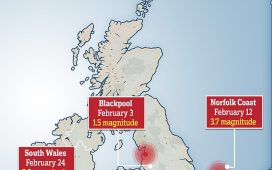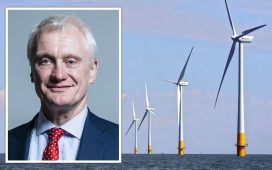[ad_1]
The EU’s former top scientist has been accused by the Brussels agency he led of being “at best economical with the truth” over claims in his resignation statement that he had been blocked from funding treatments and vaccines to tackle the coronavirus pandemic.
In an extraordinary row that highlights the tensions being wrought within the EU’s institutions by the health crisis, the board of the European Research council issued a damning statement about the man they chose to lead them just three months ago.
The ERC’s scientific council said Mauro Ferrari resigned on Tuesday evening and made his damaging claims only after being told to leave by the 19-strong board on Friday.
The council went on to say that the Italian scientist had not engaged sufficiently with his job, spent too much time in America where he had a laboratory, and had gone over the heads of the ERC board to talk to the European commission president Ursula von der Leyen.
The ERC is the EU’s chief funder of scientists seeking breakthroughs at the very frontiers of knowledge. Since its establishment in 2007, it has helped seven researchers win Nobel prizes. Ferrari, one of the world’s leading nanoscientists, was three months into a four-year tenure but had been given permission to carry on with his research in the US on cancer treatments, as in line with previous arrangements with the organisation’s presidents.
Ferrari, who revealed in January in the Guardian that he had retrained at the age of 43 to become a doctor and then a medical researcher after his first wife died from cancer, said he had joined the ERC believing he could help the funding agency serve “the needs of the world”.
But in his resignation announcement on Tuesday night, Ferrari had said that he had become “deeply disappointed and disturbed” by the EU’s reaction to what he described as a “a tragedy of possibly unprecedented proportions”.
“In time of emergencies people, and institutions, revert to their deepest nature and reveal their true character,” Ferrari wrote.
Ferrari said that his “idealistic motivations were crushed by a very different reality”. A proposal he had made in early March in Brussels to establish a special programme directed at combating Covid-19 was “unanimously rejected” by the ERC’s governing body, he wrote.
Later attempts to fund the best scientists following discussions with Von der Leyen herself had also “disintegrated upon impact” with the layers of European commission bureaucracy, Ferrari said.
“I believed this [programme] justified by the expected burden of death, suffering, societal transformation, and economic devastation, especially striking the less fortunate, the weakest in the societies of the world,” Ferrari wrote. “I thought that at a time like this, the very best scientists in the world should be provided with resources and opportunities to fight the pandemic.”
Ferrari’s said his proposal had been rejected on the grounds that the ERC’s role was to fund from the “bottom up” rather than dictate the areas where scientists should focus.
In response the scientific council of the ERC claimed that Ferrari had not understood his role and had “displayed a lack of engagement with the ERC, failing to participate in many important meetings, spending extensive time in the USA and failing to defend the ERC’s programme and mission when representing the ERC”.
“In contrast, Professor Ferrari made several personal initiatives within the commission, without consulting or tapping into the collective knowledge of the Scientific Council, and instead using his position to promote his own ideas”, the ERC statement said.
The ERC said Ferrari’s proposal had been rejected as it was outside the remit of the agency and that “his resignation in fact followed a written unanimous vote of no confidence”.
Ferrari said Von der Leyen had “personally reached out asking for my input on how the pandemic might be addressed”. But his contact with the commission president had “created an internal political thunderstorm” and his plans came to nothing, he added.
Ferrari wrote that more broadly the EU had failed to live up to its ideals in dealing with coronavirus, with member states failing to offer aid to the countries most impacted, including Italy, when it was needed most.
In the latest development, finance ministers failed on Tuesday evening to come to agreement on how they would fund the rebuilding of the European economy, with the richer northern states resisting plans for new instruments that would make borrowing on the financial markets cheaper for the south and more expensive for them.
Ferrari wrote that he had been extremely disappointed by the European response to Covid-19 and that he “lost faith in the system itself”.
[ad_2]
READ SOURCE





